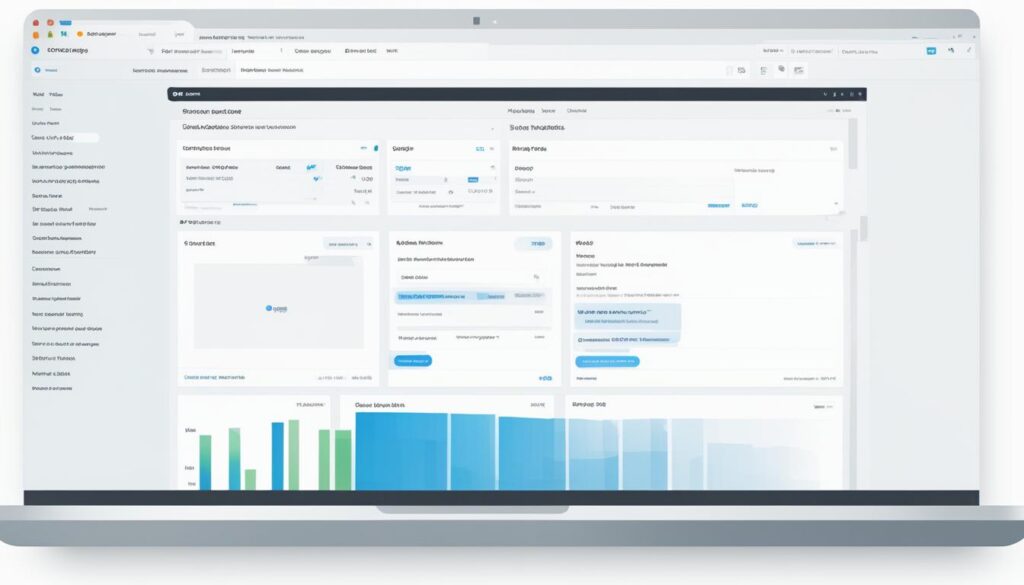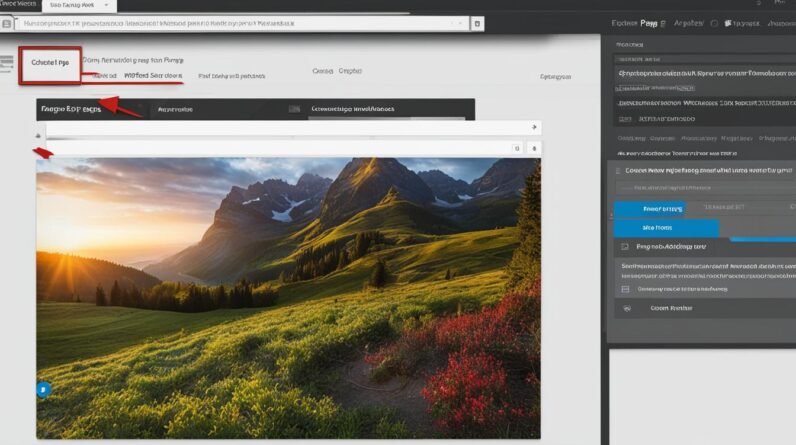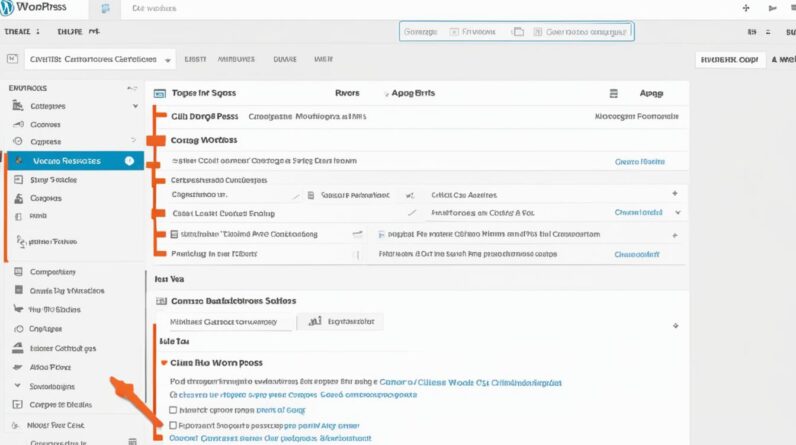When it comes to optimizing your WordPress website for search engines, meta tags play a crucial role. Meta keywords provide essential information about your website’s content and can help improve its visibility in search results. In this article, I’ll guide you through the process of adding meta keywords in WordPress without using a plugin, ensuring that your website is optimized for search engine rankings.
How to Make Money with YouTube
Create an empire of automated video websites for multiple streams of income
Meta keywords are a valuable tool for SEO optimization, allowing search engines to understand the main topics and themes covered in your website’s content. By including relevant keywords in your meta tags, you increase the chances of your website appearing in search results when users search for those specific keywords.
To add meta keywords in WordPress without using a plugin, you’ll need to modify your theme’s header.php file. This method allows you to apply the same meta keywords to your entire website, providing consistency in your SEO efforts.
Before we dive into the step-by-step guide, it’s important to note that while meta keywords were once a significant ranking factor, their importance has diminished over time. Search engines now prioritize other factors, such as high-quality content and user experience, in determining search engine rankings. However, including meta keywords can still provide additional context for search engines, so it’s worth implementing them alongside other SEO strategies.
Now, let’s get started on adding meta keywords to your WordPress website without a plugin.
- Meta keywords provide important information about your website’s content to search engines.
- Adding meta keywords can improve your website’s visibility in search results.
- While their importance in search engine rankings has diminished, including meta keywords can still provide context for search engines.
- To add meta keywords in WordPress without a plugin, you’ll need to modify your theme’s header.php file.
- Remember to choose relevant and specific keywords that accurately represent your website’s content.
What Are Meta Tags?
Meta tags are snippets of HTML code that provide information about the content of a website or web page. They play a crucial role in search engine optimization by describing the page’s content to search engines. Meta tags can include a variety of information, such as the page title, description, and keywords.
Meta tags are embedded within the HTML code of a web page and are not displayed to users. However, search engines use these tags to understand the context and relevance of the page’s content in relation to search queries.
One common use of meta tags is to provide a concise summary of the page’s content, known as the page description. This description is often displayed in search engine results, giving users an idea of what the page is about before they click on it.
While meta tags are not as important for search engine rankings as they used to be, they still have an impact on click-through rates. Well-crafted meta tags can attract users’ attention and entice them to visit your website.
Overall, meta tags are an essential component of on-page optimization and can help improve the visibility of your web pages in search engine results.
Let’s take a closer look at the different types of meta tags and their roles:
Why Are Meta Tags Important?
Although meta tags no longer hold as much weight in search engine rankings, they are still important for SEO optimization. Meta tags provide the description that is displayed in search engine results, which can greatly influence click-through rates. By optimizing meta tags to accurately describe the content of the page and make it more appealing to users, you can increase the likelihood of attracting organic traffic to your website.
Benefits of Meta Tags
- Improved search engine visibility
- Higher click-through rates in search engine results
- Enhanced user experience with concise page summaries
- Increased traffic and engagement
Meta tags play a crucial role in search engine optimization as they provide valuable information about your website’s content. While they may not directly impact search engine rankings, they can greatly affect the click-through rates and overall visibility of your web pages in search engine results.
When users search for specific keywords, search engines display a list of results with snippets that include the page title, meta description, and URL. A compelling meta description that accurately reflects the content can attract more clicks, while a poorly crafted one may discourage users from visiting your website.
In addition, meta tags serve as a summary of your page’s content, allowing users to quickly understand what your website offers. By optimizing meta tags with relevant keywords and providing a concise and appealing description, you can increase the likelihood of attracting organic traffic and capturing the interest of potential visitors.
Overall, while the importance of meta tags in search engine rankings may have diminished, they still contribute significantly to the success of your website by improving click-through rates, enhancing user experience, and ultimately driving more traffic to your site.
| Meta Tag | Description |
|---|---|
| Title | The title tag is displayed as the main title in search engine results and plays a crucial role in attracting clicks. It should accurately summarize the content of the page and include relevant keywords. |
| Description | The meta description provides a concise summary of the page’s content. It appears below the title tag in search engine results and influences the click-through rate. It should be compelling, informative, and capture the essence of the page. |
| Keywords | The keywords meta tag includes relevant keywords related to the page’s content. While search engines no longer rely heavily on this tag for rankings, it can still provide some contextual information about your page. |
Method 1: Using the Yoast SEO Plugin
When it comes to adding meta tags to your WordPress website, the Yoast SEO plugin is a popular and user-friendly option. This plugin allows you to easily optimize your meta data for posts and pages, helping you improve your website’s search engine visibility. Here’s a step-by-step guide on how to use the Yoast SEO plugin to add meta tags:
Step 1: Install and Activate the Yoast SEO Plugin
To get started, you’ll need to install and activate the Yoast SEO plugin. You can find this plugin by navigating to the “Plugins” section in your WordPress dashboard and searching for “Yoast SEO.” Once you’ve found the plugin, click on the “Install Now” button and then activate it.
Step 2: Edit Your Post or Page
Once the Yoast SEO plugin is activated, you can navigate to the posts or pages section in your WordPress dashboard and select the post or page you want to edit. Click on the “Edit” button to open the post or page editor.
Step 3: Customize Your Meta Data
Within the Yoast SEO section, you’ll find options to customize your meta data. The key elements to focus on are the primary keyword, focus keyphrase, and meta description.
- Primary Keyword: Enter your primary keyword or focus keyphrase in the designated field. This keyword or phrase should accurately represent the content of your post or page.
- Focus Keyphrase: The focus keyphrase is similar to the primary keyword and helps search engines understand the main topic of your post or page.
- Meta Description: Customize the meta description for your post or page. This description should provide a concise summary of the content and entice users to click through to your website from search engine results.
Step 4: Save Your Changes
Once you’ve customized your meta data, make sure to save your changes. You can do this by clicking on the “Update” or “Publish” button, depending on whether you’re editing an existing post or page or creating a new one.
Using the Yoast SEO plugin is an effective way to add and optimize meta tags in WordPress. Its intuitive interface and features make it easy to customize your meta data for improved search engine visibility. By utilizing this plugin, you can enhance the SEO performance of your website and attract more organic traffic.
| Pros | Cons |
|---|---|
| ✔ User-friendly interface | ✘ Requires plugin installation and activation |
| ✔ Customizable meta data for posts and pages | ✘ Limited customization options compared to manual coding |
| ✔ Helps improve search engine visibility | ✘ May not be suitable for advanced customization needs |
Method 2: Add Meta Tag Without a Plugin
If you prefer not to use a plugin, you can manually add meta tags to your WordPress theme’s header.php file. This method allows you to customize the meta tags for your entire website.
To add meta tags, follow these steps:
- Open the header.php file of your WordPress theme.
- Locate the <head> tag within the file.
- Copy the following generic meta tags and paste them below the <head> tag:
| HTML Tag | Description |
|---|---|
| <meta name=”keywords” content=”your keywords here”> | This meta tag allows you to add relevant keywords related to your website’s content. Replace “your keywords here” with your desired keywords. |
| <meta name=”description” content=”your meta description here”> | This meta tag provides a concise summary of your website’s content. Replace “your meta description here” with a brief description that accurately represents your website. |
Make sure to replace the placeholder values within the meta tags with your own keywords and meta description.
Here is an example of how the modified header.php file with the added meta tags should look:
Once you have added and customized the meta tags, save the header.php file and upload it to your WordPress theme’s directory on your server.
Please note that this method applies the same meta tags to the entire website and does not allow for customization on a per-post or per-page basis.
Summary: Key Details
Adding meta tags to your WordPress website is a crucial aspect of search engine optimization (SEO). It helps search engines understand the content of your website, improving its visibility and ranking in search results. Two methods to add meta tags without using plugins are through the Yoast SEO plugin and manually adding them to the header.php file.
The Yoast SEO Plugin
The Yoast SEO plugin is a widely used tool for WordPress website optimization. It offers a user-friendly interface, making it easy to add and optimize meta tags on a per-post or per-page basis. By installing and activating the Yoast SEO plugin, you can navigate to the posts or pages section in your WordPress dashboard and customize the meta content. This includes specifying primary keywords and crafting compelling meta descriptions.
Manually Adding Meta Tags to the header.php File
If you prefer not to use a plugin, you can manually insert meta tags into your WordPress theme’s header.php file. This method applies the same meta tags to your entire website, without customization on a per-post or per-page basis. To complete this process, locate the <head> tag in the header.php file and insert the necessary HTML code for your meta tags below it. This method requires some coding knowledge and should be approached with caution.
When adding meta tags, it’s essential to choose relevant keywords and craft compelling meta descriptions. This attracts organic traffic and increases click-through rates. Utilizing effective meta tag strategies enhances your website’s search engine optimization, leading to improved search engine visibility and user engagement.
| Method | Advantages | Disadvantages |
|---|---|---|
| The Yoast SEO Plugin | 1. User-friendly interface 2. Per-post or per-page customization |
1. Requires plugin installation 2. Limited customization options |
| Manual Addition to header.php File | 1. No plugin dependency 2. Same meta tags applied to the entire website |
1. Requires coding knowledge 2. No per-post or per-page customization |
The Benefits of Meta Tags
Meta tags play a crucial role in enhancing your website’s visibility, search engine ranking, and user experience. By utilizing meta tags effectively, you can optimize your content for search engine crawls and attract organic traffic. Here are the key benefits of incorporating meta tags into your website:
- Improved Search Engine Crawls: Meta tags provide valuable information to search engines about your content, helping them understand the context and relevance of your web pages. This, in turn, enhances the visibility of your content in search results.
- Enhanced Content Visibility: By including relevant meta tags, you can influence how your website is displayed in search engine snippets. By crafting compelling meta descriptions, you can provide users with concise summaries that entice them to click through to your website.
- Higher Search Engine Ranking: Optimized meta tags, including relevant keywords, can positively impact your website’s ranking in search results. By aligning your meta tags with user search queries, you increase the chances of your website appearing higher in search engine rankings.
- Improved User Experience: Meta tags contribute to a better user experience by providing users with essential information about your content in search results. Relevant meta descriptions help users understand what your page offers, attracting more qualified clicks and enhancing engagement on your website.
What is a Meta Tag?
A meta tag is a piece of HTML code that provides a summary or snippet of a web page’s content. It serves as a concise preview for the search engine results and helps search engines understand the purpose and relevance of the page. By including important keywords and relevant information in the meta tag, we can attract the attention of both search engines and readers.
Meta tags play a crucial role in improving search engine visibility and click-through rates. They provide a brief summary that appears in search engine results, often referred to as a snippet. This snippet gives users a glimpse of what the page is about, which can influence their decision to click and visit the page.
Here’s an example of a meta tag:
<meta name="description" content="Learn all about the importance of meta tags and how to optimize them for better search engine results.">
Including relevant keywords and a compelling description in the meta tag can help improve the chances of attracting the right readers to your website. It’s important to carefully craft the meta tag to accurately represent the content of the page and entice readers to click through to your website.
What are Meta Tags’ Three Main Parts?
Meta tags play a crucial role in optimizing a website for search engines. They consist of three main parts: the title tag, description tag, and keywords tag. Each of these elements serves a specific purpose in improving search engine ranking and providing a concise content summary.
The Title Tag
The title tag is the main title displayed in search engine results. It acts as the anchor text when users share your content on social media platforms. The title tag is a critical element for both search engine visibility and user engagement. By crafting a compelling and informative title, you can attract more organic traffic to your website.
The Description Tag
The description tag provides a brief summary of your page’s content. It influences the text displayed in search engine snippets, giving users a glimpse into what they can expect when they visit your website. A well-crafted description can significantly impact click-through rates and entice users to choose your page over others in the search results.
The Keywords Tag
While the importance of the keywords tag in search engine rankings has diminished over time, it can still provide some value when used appropriately. This tag allows you to include relevant keywords related to your page’s content. However, it’s important to note that search engines now rely more on the actual content of the page rather than the keywords tag when determining relevance and ranking.
In summary, meta tags consist of the title tag, description tag, and keywords tag. These elements contribute to your website’s search engine ranking and content summary. By optimizing each tag effectively, you can improve the visibility of your website and enhance user experience.
The Step-By-Step Guide on How to Add Meta Tags to WordPress Website Without Plugin
If you want to add meta tags to your WordPress website without using a plugin, you can do so by modifying either the functions.php or the header.php file. However, please note that this process requires some coding knowledge. It’s crucial to approach it with caution and make backups of your website before proceeding to ensure the integrity of your site.
Follow the step-by-step guide below to add meta tags, including meta description and meta keywords, to your WordPress website:
- Access the backend of your WordPress website.
- Locate the functions.php or header.php file in your theme directory.
- Open the functions.php or header.php file using a text editor.
- Find the <head> tag in the file.
- If modifying the functions.php file:
- Insert the following code snippet in your functions.php file:
- Replace “Your meta description here” with your desired meta description.
- Replace “Your meta keywords here” with your desired meta keywords separated by commas.
- If modifying the header.php file:
- Insert the following code snippet just below the <head> tag in your header.php file:
- Replace “Your meta description here” with your desired meta description.
- Replace “Your meta keywords here” with your desired meta keywords separated by commas.
- Save the changes made to the file.
- Refresh your website to see the updated meta tags.
<?php
function add_custom_meta_tags() {
echo '<meta name="description" content="Your meta description here">';
echo '<meta name="keywords" content="Your meta keywords here">';
}
add_action('wp_head', 'add_custom_meta_tags');
?>
<meta name="description" content="Your meta description here">
<meta name="keywords" content="Your meta keywords here">
Remember, adding meta tags through code customization allows you to tailor your meta description and meta keywords. It’s essential to choose relevant keywords and craft compelling meta descriptions that accurately represent the content of your pages. By doing so, you can optimize your website for search engines and improve its visibility.
Example:
Here’s an example of how the modified header.php file may look:
<!DOCTYPE html>
<html lang="en">
<head>
<meta charset="UTF-8">
<meta name="viewport" content="width=device-width, initial-scale=1.0">
<meta name="description" content="Enhance your WordPress website with meta tags">
<meta name="keywords" content="WordPress, meta tags, coding, search engine optimization">
<title>My WordPress Website</title>
<link rel="stylesheet" href="style.css">
</head>
<body>
<!-- Your website content -->
<script src="script.js"></script>
</body>
</html>
| File | Modified Code |
|---|---|
| functions.php |
<?php
function add_custom_meta_tags() {
echo '<meta name="description" content="Enhance your WordPress website with meta tags">';
echo '<meta name="keywords" content="WordPress, meta tags, coding, search engine optimization">';
}
add_action('wp_head', 'add_custom_meta_tags');
?>
|
| header.php |
<meta name="description" content="Enhance your WordPress website with meta tags">
<meta name="keywords" content="WordPress, meta tags, coding, search engine optimization">
|
FAQs about How to Add Meta Tags in WordPress Without a Plugin
Here are some frequently asked questions about adding meta tags in WordPress without using a plugin:
1. Can I add meta tags to my WordPress website without using a plugin?
Yes, you can add meta tags to your WordPress website without relying on a plugin. There are manual methods available, which involve modifying your theme’s files.
2. Why would I want to add meta tags without a plugin?
Adding meta tags without a plugin gives you more control over your website’s SEO optimization. It allows you to customize meta descriptions and meta keywords to improve your website’s search engine ranking and visibility.
3. How do I add meta tags to the header.php file?
To add meta tags to the header.php file, you need to locate the <head> tag and insert the necessary HTML code. You can include meta keywords and meta descriptions directly within the <head> section of the file.
4. Can I add different meta tags for each page or post?
If you’re adding meta tags manually to the header.php file, the same meta tags will be applied to every page and post on your WordPress website. To add different meta tags for each page or post, you’ll need to use a plugin or explore alternative solutions, such as custom fields.
5. What should I include in my meta tags?
When creating meta tags, make sure to include relevant keywords related to the content of your web page. Craft compelling meta descriptions that accurately summarize your page’s content and entice users to click.
6. How do meta tags impact website ranking?
Meta tags play a role in search engine optimization and can influence how search engines interpret and rank your website’s content. By using relevant meta tags and optimizing them effectively, you can improve your website’s ranking in search engine results.
7. Should I use meta keywords?
While meta keywords were once important for SEO, their significance has decreased over time. Search engines now rely more on the actual content of your web page for ranking purposes. However, including relevant meta keywords can still provide additional context to search engines.
8. How often should I update my meta tags?
It’s a good practice to periodically review and update your meta tags to align with any changes in your website’s content or SEO strategy. Regularly optimizing your meta tags can help maximize their effectiveness in driving organic traffic to your WordPress website.
9. Can I use a combination of plugin and manual methods for meta tags?
Yes, it’s possible to use a combination of a plugin and manual methods for meta tags. For example, you can utilize a plugin like Yoast SEO for specific pages or posts, while manually adding meta tags to your header.php file for overall meta tag consistency.

| Question | Answer |
|---|---|
| 1. Can I add meta tags to my WordPress website without using a plugin? | Yes |
| 2. Why would I want to add meta tags without a plugin? | More control over SEO optimization |
| 3. How do I add meta tags to the header.php file? | Locate <head> tag and insert HTML code |
| 4. Can I add different meta tags for each page or post? | Same meta tags for each page or post; need plugin or alternative solutions |
| 5. What should I include in my meta tags? | Relevant keywords and compelling meta descriptions |
| 6. How do meta tags impact website ranking? | Provide context for search engines; improve ranking |
| 7. Should I use meta keywords? | Decreased significance; still provide context |
| 8. How often should I update my meta tags? | Periodically review and update; align with content changes |
| 9. Can I use a combination of plugin and manual methods for meta tags? | Yes, for specific pages or posts vs. overall consistency |
Conclusion
Adding meta tags to your WordPress website is a crucial step in optimizing your site for search engines and improving its visibility. While plugins like Yoast SEO provide a convenient solution for adding and optimizing meta tags, you can also manually insert them into your theme’s header.php file. By strategically choosing relevant keywords and crafting compelling meta descriptions, you can enhance search engine visibility and attract user engagement.
Meta tags play a vital role in conveying the essence of your content to search engines, helping them understand what your website is all about. This, in turn, improves your website’s chances of ranking higher in search engine results, driving more organic traffic to your site.
To unlock the full potential of your WordPress website, it’s essential to implement effective meta tag strategies. By optimizing meta tags, you can boost your website’s SEO efforts and improve your online presence, ultimately reaching a wider audience and achieving your goals. Remember, a well-optimized website with user-friendly meta tags is more likely to attract and engage users, leading to higher conversion rates and a successful online presence.
FAQ
How can I add meta keywords in WordPress without using a plugin?
To add meta keywords in WordPress without a plugin, you can manually insert them into your theme’s header.php file. This requires some coding knowledge and should be approached with caution. By customizing the header.php file, you can add the necessary meta keywords for your website.
What are meta tags?
Meta tags are snippets of HTML code that describe the content of a web page. They provide information to search engines about what the page is about and can be used to display a page description in search engine results.
Why are meta tags important?
Although meta tags are not as important for search engine rankings as they used to be, they still play a role in improving click-through rates and providing a concise summary of the page’s content. Meta tags can greatly influence how your pages are displayed in search results, attracting organic traffic to your website.
How can I add meta keywords using the Yoast SEO plugin?
To add meta keywords using the Yoast SEO plugin, you need to install and activate the plugin. Once activated, you can navigate to the posts or pages section in your WordPress dashboard, edit the content, and customize the meta description and primary keyword in the Yoast SEO section.
How can I add meta tags without using a plugin?
To add meta tags without using a plugin, you can manually insert them into your WordPress theme’s header.php file. By modifying the header.php file and adding the appropriate HTML tags, you can include meta tags, such as meta descriptions and meta keywords, to your website.
What are the benefits of meta tags?
Meta tags offer several benefits for your website. They help search engines crawl and understand your content better, improving its visibility and ranking in search results. Properly optimized meta tags also enhance the user experience by providing concise summaries and relevant information in search engine snippets.
What exactly is a meta tag?
A meta tag is a piece of HTML code that provides a summary or snippet of a web page’s content. It helps search engines understand what the page is about and displays relevant information in search engine results.
What are the main parts of meta tags?
Meta tags consist of three main parts: the title tag, description tag, and keywords tag. The title tag is displayed as the main title in search engine results, the description tag provides a summary of the page’s content, and the keywords tag includes relevant keywords related to the page’s content.
How can I add meta tags to my WordPress website without using a plugin?
To add meta tags to your WordPress website without using a plugin, you can modify the functions.php or header.php file. This process requires some coding knowledge and should be done with caution. By following a step-by-step guide, you can insert the necessary code to add meta tags, including meta descriptions and meta keywords, to your website.
What are some frequently asked questions about adding meta tags in WordPress without a plugin?
Some frequently asked questions about adding meta tags in WordPress without a plugin include how to add meta keywords, the importance of meta tags, how to use the Yoast SEO plugin, and the manual method of adding meta tags through the header.php file.






